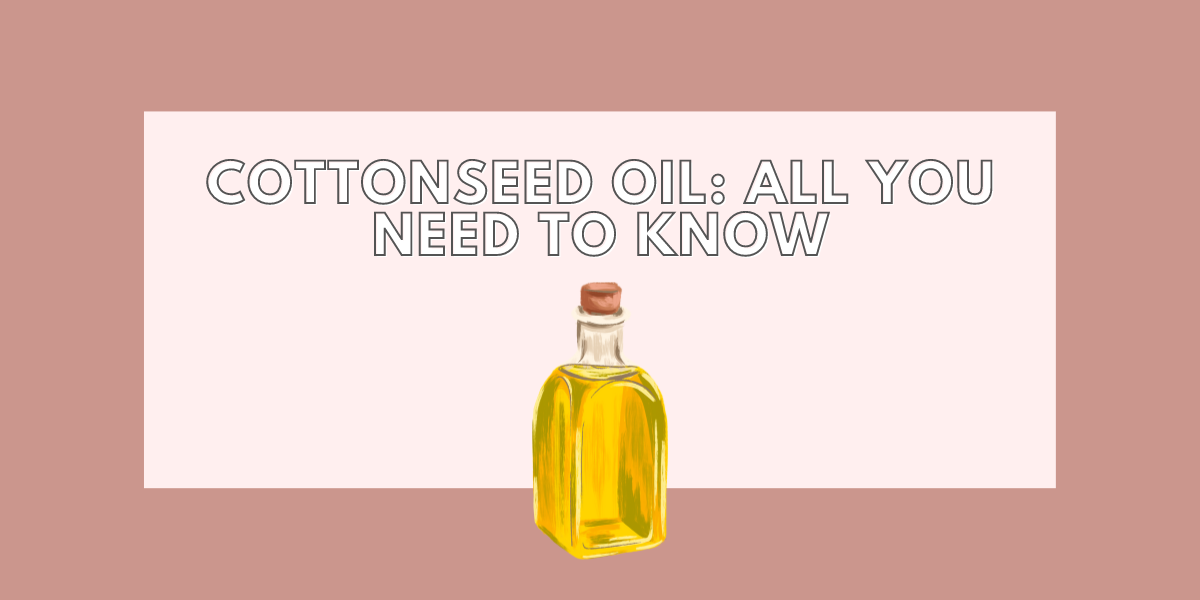You’ve probably used cottonseed oil even though it may not be as well-known as, say, olive or canola oil. This invisible oil from cottonseed oil suppliers can be found in premade snacks, fried restaurant meals, and home-cooked meals. It has no taste and may be beneficial to your health. However, ought cottonseed oil to be a mainstay in your kitchen?
To assist you in determining whether cottonseed oil ought to be a component of your diet, we looked into the most recent research. We consulted registered dietitians to explain its benefits, limitations, and nutritional profile.
What is Cottonseed Oil?
Cooking oil made from cotton plant seeds is what it sounds like cottonseed oil. Following oil extraction from the seeds, gossypol—a poisonous polyphenolic molecule that acts as a plant repellant for insects—is eliminated from the oil by refining, bleaching, and deodorizing.
Since the middle of the 19th century, the cotton plant’s oil has been harvested primarily for soaps. However, Crisco’s development in 1911—initially derived from hydrogenated cottonseed oil—made it a well-liked culinary ingredient in the United States2. (Today, palm and soybean oils are used to make Crisco.)
With a high smoke point of about 420 degrees Fahrenheit and a neutral taste, cottonseed oil is perfect for usage in restaurants and highly processed meals. Cottonseed oil is frequently found in processed goods since it increases shelf life. You may also use cottonseed oil for baking and cooking at home.
Nutritional Value of Cottonseed Oil
- 124 calories
- 14 grammes fat
- Stick fat: 3.63 ounces
- 2.49 grammes of monounsaturated fat.
- 7.27 grammes of polyunsaturated fat, primarily omega-6
- Amount of vitamin E: 4.94 mg
According to experts of canola oil manufacturers, the fatty acid profile of cottonseed oil is typically 50% polyunsaturated fat (PUFA), 20% monounsaturated fat (MUFA), and 20% saturated fat. In contrast, individual strains of cottonseed may have somewhat variable compositions. All types of fat are necessary for energy and to aid in the body’s absorption of specific vitamins.
On the other hand, a diet high in saturated fat can raise blood levels of low-density lipoprotein, or LDL, or “bad” cholesterol, which can increase the risk of stroke and heart disease.
Conversely, unsaturated fat found in cottonseed oil may benefit cardiovascular health5. There is plenty of research to suggest that monounsaturated fat is beneficial, particularly when we swap saturated fats [with it]. To assist your metabolism, you must also get polyunsaturated fats from your diet, like omega-3 and omega-6 fatty acids.
Although omega-6 fatty acids have a negative reputation for being pro-inflammatory, specialists have discovered that omega-6-rich foods and oils are helpful to human health and do not induce inflammation. This discovery was made after ten years of research. Again, there are advantages when we substitute more polyunsaturated fats, such as those found in dairy and tropical oils, for saturated fats.
The key to controlling inflammation is eating a healthy balance of omega-3s and omega-6s. Omega-6s make up a far more significant percentage of cottonseed oil than omega-3s.
Benefits
Numerous unsubstantiated advantages of having cottonseed and canola oil from canola oil manufacturers exist. While there is proof for specific assertions, others are merely anecdotal. These are preliminary findings, though, and more investigation is required. There isn’t yet any scientific evidence to support switching to cottonseed oil instead of your other cooking oils.
1. Anti-Cancer Effects
Gossypol was discovered to enhance the effects of radiation on prostate cancer cells in earlier animal research. Additionally, there is evidence that cottonseed oil may decrease drug-resistant cancer cells. Gossypol also inhibited tumour growth and delayed or eliminated three prostate cancer cell lines, according to an earlier study.
Trials on humans have revealed possible advantages for delaying the spread of some malignancies, such as gastric carcinoma.
2. Reduced Inflammation
According to certain studies conducted on animals, cottonseed oil may lessen inflammation Trusted Source. In particular, following brain damage akin to a stroke, rats treated with cottonseed oil exhibited reduced inflammatory markers.
Numerous studies have shown that eating a diet high in monounsaturated fats can lower human inflammation. It has been discovered that individuals who consume a Mediterranean diet rich in monounsaturated fats have far lower blood levels of inflammatory substances.
Chronic illnesses, including heart disease, have been related to inflammation. However, the percentage of monounsaturated fat in cottonseed oil is merely 18%. Other oils with anti-inflammatory qualities that the Arthritis Foundation suggests are:
- Oilseed grapes
- Cannabis oil
- Walnut oil
- Avocado oil
3. Lesser Chances of Cardiovascular Diseases
The unsaturated fats in cottonseed oil from cottonseed oil suppliers have the potential to reduce inflammation and raise HDL while also decreasing LDL. In addition to lowering the risk of heart disease and stroke, this can increase blood pressure.
In a small 2018 study, healthy males with a diet high in cottonseed oil for five days saw reduced triglyceride and cholesterol levels. Contrary to other vegetable oils, cottonseed oil also contains more saturated fat, which may have the opposite impact. There are additional heart-healthy oils that are available with greater data supporting their use.
4. Wound Healing
High concentrations of vitamin E, an antioxidant with numerous demonstrated skin benefits, including quicker wound healing, are found in cottonseed oil. Studies have also demonstrated the beneficial effects of vitamin E on psoriasis, other skin disorders, and wounds. It implies that cottonseed oil might work similarly. However, vitamin E can be found in more concentrated forms.
Connect with Revive Oils Today!
Vegetable oil made from cottonseed is a versatile and popular choice. Customers are empowered by knowing its extraction method, culinary applications, and health benefits. It is a valuable product in many industries due to its adaptability in the kitchen, cosmetic applications, and industrial settings.


